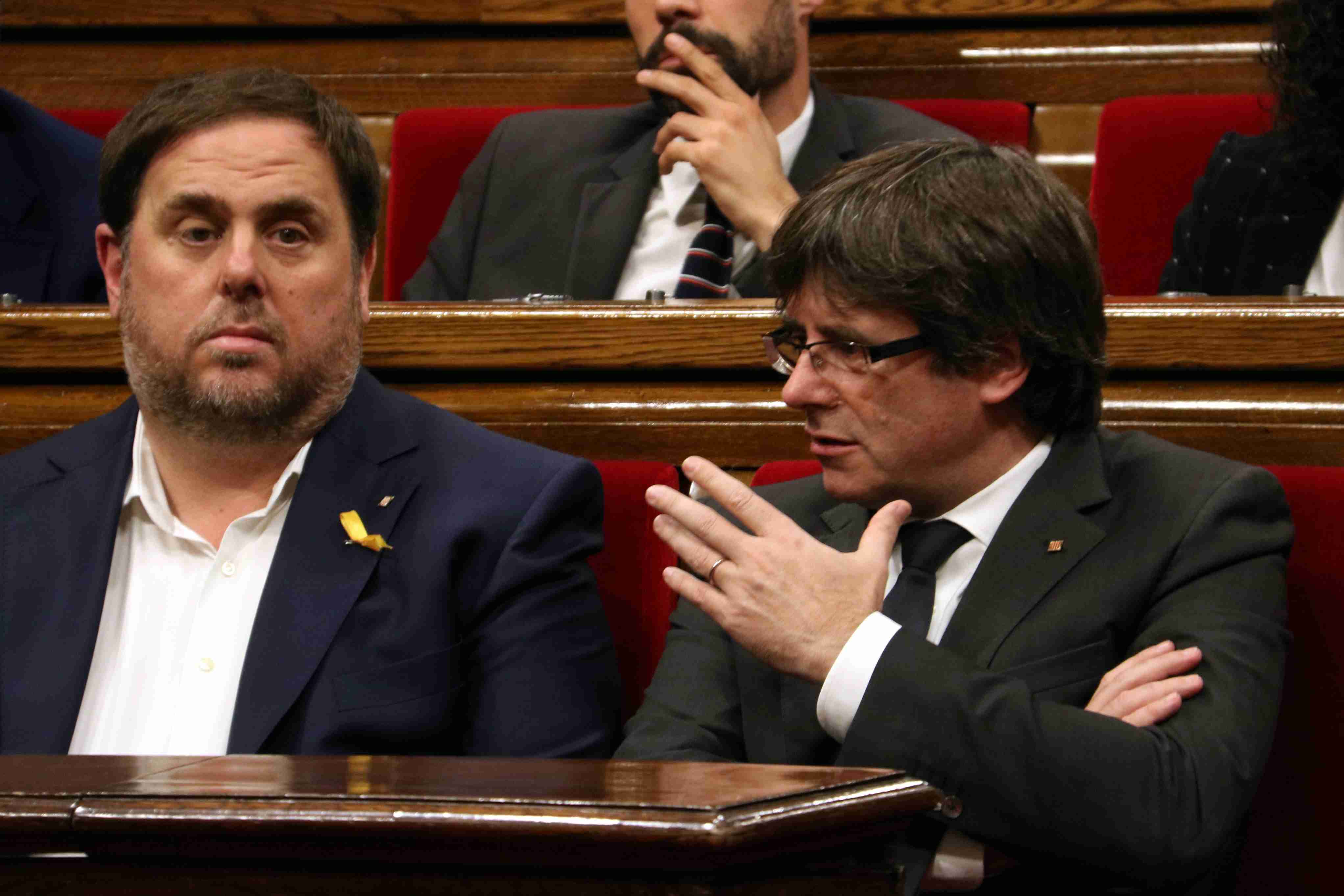The Court of Accounts, the Spanish tribunal that audits public spending, has reactivated its case on Catalonia's expenditure on the 2017 independence referendum and the foreign promotion of Catalonia, despite the fact that the amnesty bill, which when passed will end this prosecution, has already been approved by the Spanish lower house. This Thursday, the auditing tribunal's councillor who is hearing the case, Elena Hernáez, notified both public prosecutors and the private prosecution in the case, Sociedad Civil Catalana, that they have ten days to present the written conclusions of their accusations, as sources among the defendants have confirmed to ElNacional.cat. The case had been at a standstill since January, when the councillor ruled out the suggestion that, due to the amnesty bill, a postponement should be called for the end of the trial against 35 former officials of the Catalan governments of Artur Mas and Carles Puigdemont, including both these two presidents and vice president Oriol Junqueras. The defendants' defence teams have not received any notification from the tribunal on submitting their briefs. The usual practice is that, once the prosecution has presented its findings, the defence will be given another ten days to do so. After that is done, the councillor has to issue the sentence - which could come out within a month.
The public prosecutor demands that the 35 officials pay 3.2 million euros - with the Sociedad Civil Catalana calling for them to pay 5.3 million - to reimburse the public spending on the 2017 referendum and the promotion of Catalonia abroad between the years 2011 and 2017. The trial started last November 17th, and it was left with one stage pending - the presentation of final written conclusions by prosecutions and defences - before the tribunal issued its decision. Sources at the Court of Accounts explain that the councillor was waiting for the resolution of appeals before reactivating the final part of the process, having already ruled out postponing the case due to the amnesty, arguing that it was not a law in force.
Puigdemont, nor permitted to be heard
The hearing in November was controversial because, at the last minute, councillor Hernáez refused the request for declaration by videoconference made by the Catalan president-in-exile, Carles Puigdemont, because - in her opinion - he had not requested it within the legal time set down. The president's lawyer, Gonzalo Boye, recalled that the court had approved his use of a videoconference statement months earlier and that everyone knew the reasons why he could not be present at the trial in Madrid. No change was made.
The amnesty and the payments
The amnesty bill, agreed by the two main Catalan pro-independence parties Junts and ERC with the Spanish Socialists, includes the procedures in the Court of Accounts, whatever phase they are in. However, the legislation, now being debated in the Senate, makes it clear that the fines and the bonds handed over will not be returned if there is already a final sentence. This would be the case with the procedure on the public spending for the first independence consultation, of 2014, for which the tribunal of Auditors made then-president Artur Mas and his ministers pay 4.9 million euros, a sum that was in the end covered by the public through pro-independence Solidarity Fund. In the case of the current case, the Court of Accounts will indeed have to return the money deposited, once the law is approved - both the sums covered by the Catalan Institute of Finance (ICF) and the Solidarity Fund.

